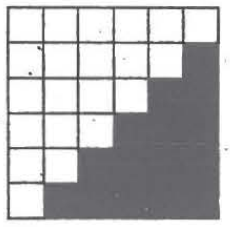Fractions, Ratios, and Proportions
 Calculators for Fractions
Calculators for Fractions
For ACT Students
The ACT is a timed exam...60 questions for 60 minutes
This implies that you have to solve each question in one minute.
Some questions will typically take less than a minute a solve.
Some questions will typically take more than a minute to solve.
The goal is to maximize your time. You use the time saved on those questions you
solved in less than a minute, to solve the questions that will take more than a minute.
So, you should try to solve each question correctly and timely.
So, it is not just solving a question correctly, but solving it correctly on time.
Please ensure you attempt all ACT questions.
There is no negative penalty for a wrong answer.
For JAMB Students
Calculators are not allowed. So, the questions are solved in a way that does not require a calculator.
Solve all questions.
Use at least two (two or more) methods whenever applicable.
Show all work.
For all my applicable students: Calculators ARE NOT allowed for all questions.
